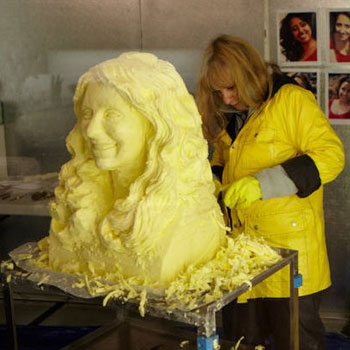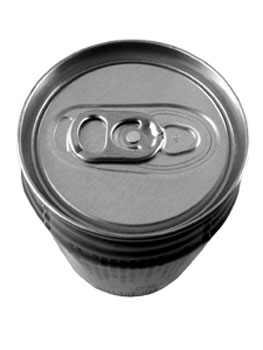“Better Butter Better” Leads to Butter Bust Winner
Saturday, 01 December 2012 18:48
 Saying that five times fast led to a college student’s likeness in Darigold butter.
Saying that five times fast led to a college student’s likeness in Darigold butter.
It took 110 pounds of butter, two days of carving and a 14-second, tongue-twisting video to make it happen. One lucky Seattle resident, Haley Alaji, was announced the grand-prize winner in Darigold’s “Better Butter” online contest, and as her prize, Darigold created an oversized butter bust carving of Alaji that will feature prominently on billboards throughout Puget Sound through December.
“It’s amazing to see myself in butter—the carving is so precise, and it actually looks just like me!” says Alaji, a theater student at the Cornish College of the Arts who lives in downtown Seattle and moved to the Northwest four months ago from Detroit. “I happened to come across Darigold’s contest asking people to submit videos of themselves saying ‘better butter better’ five times fast, and decided to go for it. I found a street performer playing the violin, set up my camera and shot a little spontaneous dance video, and the judges picked me!”

 An interview with father and son Michel and Sébastien Bras of France.
An interview with father and son Michel and Sébastien Bras of France. We need to remind our students that communication is an art that recognizes the dignity and importance of the receiver. In fact, have them consider taking the E-Mail Pledge.
We need to remind our students that communication is an art that recognizes the dignity and importance of the receiver. In fact, have them consider taking the E-Mail Pledge. A must list that students should review frequently so they might keep their jobs in commercial kitchens.
A must list that students should review frequently so they might keep their jobs in commercial kitchens. The Great American Can Roundup Industry Challenge raises more than $183,000 for charity.
The Great American Can Roundup Industry Challenge raises more than $183,000 for charity.